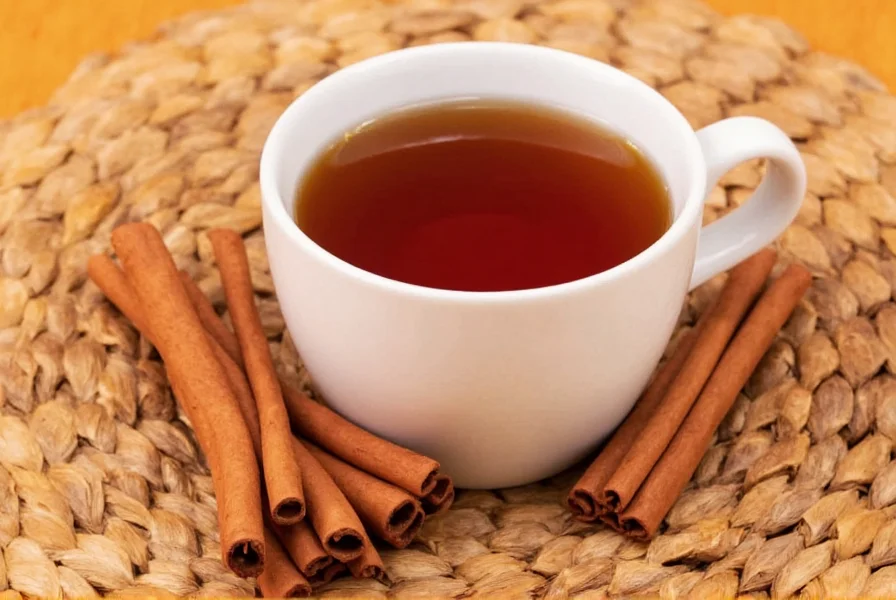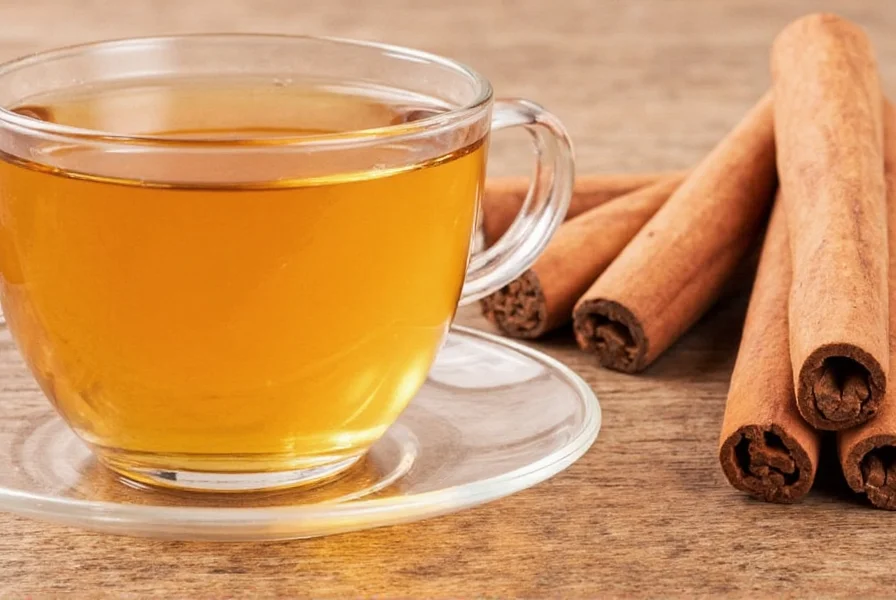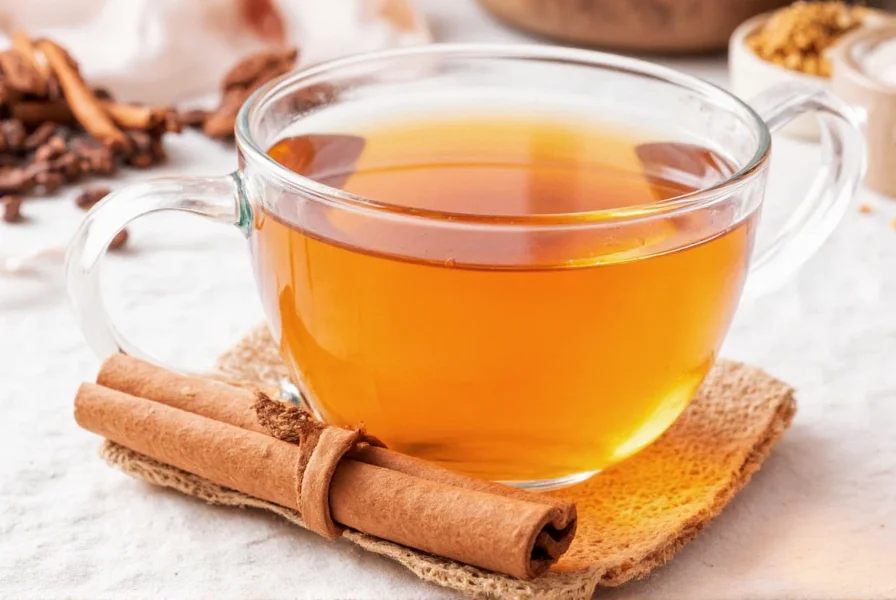Adding cinnamon to tea creates a delightful sensory experience while potentially offering health benefits supported by scientific research. This versatile spice works with numerous tea varieties, from robust black teas to delicate green blends, creating beverages that warm the body and satisfy the palate. Understanding how to properly incorporate cinnamon into your tea routine ensures optimal flavor extraction and safety.
The Two Main Types of Cinnamon for Tea
Not all cinnamon is created equal when it comes to tea preparation. The two primary varieties available commercially differ significantly in flavor profile and chemical composition:
| Type | Flavor Profile | Coumarin Content | Best Tea Pairings |
|---|---|---|---|
| Ceylon Cinnamon | Milder, sweeter, more complex | Low (0.017g/kg) | Green tea, white tea, delicate herbal blends |
| Cassia Cinnamon | Bolder, spicier, more intense | High (6.97g/kg) | Black tea, chai blends, strong herbal teas |
For regular consumption, Ceylon cinnamon (Cinnamomum verum) represents the safer choice due to its significantly lower coumarin content. Cassia cinnamon contains higher levels of coumarin, which in excessive amounts may cause liver issues for sensitive individuals. When preparing cinnamon tea recipes for daily consumption, particularly for those with liver conditions, Ceylon provides a safer long-term option while still delivering excellent flavor.

Health Benefits and Considerations of Cinnamon Tea
Research suggests several potential health benefits associated with moderate cinnamon consumption in tea. A 2020 review published in Nutrients highlighted cinnamon's antioxidant properties, which may help combat oxidative stress. When added to tea, these compounds work synergistically with tea polyphenols for enhanced effects.
Studies indicate that consuming cinnamon in tea may support healthy blood sugar levels. Research in the Journal of the Academy of Nutrition and Dietetics found that 1-6 grams of cinnamon daily showed potential benefits for insulin sensitivity. However, tea drinkers should note that a typical cup contains far less than these therapeutic doses.
Important safety considerations include:
- Limited to 1-2 cups daily when using Cassia cinnamon due to coumarin content
- Avoid excessive consumption during pregnancy
- Consult your physician if taking blood thinners (cinnamon may enhance effects)
- Discontinue use if mouth irritation occurs (cinnamon oil can cause contact stomatitis)
Optimal Methods for Adding Cinnamon to Tea
How you incorporate cinnamon significantly impacts flavor extraction and overall tea experience. Professional tea blenders recommend these evidence-based techniques:
Using Cinnamon Sticks
Place a 2-3 inch cinnamon stick directly in your teapot or cup before adding hot water. The optimal water temperature ranges between 195-205°F (90-96°C). Steep for 5-7 minutes for balanced flavor—longer steeping creates more intense cinnamon notes but may become overpowering. Whole sticks release flavor gradually, preventing bitterness.
Using Ground Cinnamon
For ground cinnamon, use 1/4 to 1/2 teaspoon per 8 ounces of tea. Add the powder directly to your tea leaves before brewing or stir into finished tea. Ground cinnamon dissolves more completely when mixed with a small amount of honey or citrus juice first. This technique prevents clumping and ensures even distribution throughout your cup.

Tea Varieties That Complement Cinnamon
Certain tea bases create exceptional harmony with cinnamon. Understanding these pairings helps you craft the perfect cinnamon tea experience:
Black Teas
Assam, Ceylon, and English Breakfast provide robust foundations that stand up to cinnamon's strong flavor. The malty notes in black tea blend beautifully with cinnamon's warmth, creating a comforting beverage ideal for morning consumption. For chai-inspired blends, combine black tea with cinnamon, cardamom, ginger, and a touch of black pepper.
Green Teas
Higher quality green teas like Sencha or Dragonwell work best with subtle cinnamon additions. Use Ceylon cinnamon sparingly (1/8 teaspoon per cup) to avoid overwhelming the tea's delicate vegetal notes. The combination creates an intriguing flavor profile with potential metabolic benefits supported by research in the American Journal of Clinical Nutrition.
Herbal Blends
Rooibos, honeybush, and hibiscus teas create excellent cinnamon partners. The natural sweetness of these caffeine-free options balances cinnamon's spice, making them ideal evening beverages. For digestive benefits, combine cinnamon with ginger and peppermint in herbal tea blends.
Three Simple Cinnamon Tea Recipes
Classic Cinnamon Black Tea
Bring 8 ounces of water to 200°F. Place 1 black tea bag or 1 teaspoon loose leaf tea plus a 2-inch cinnamon stick in your cup. Pour water over ingredients and steep for 4-5 minutes. Remove tea and cinnamon stick. Add honey to taste if desired. This basic cinnamon tea recipe serves as the foundation for numerous variations.
Cinnamon Green Tea with Citrus
Heat 8 ounces of water to 175°F. Combine 1 teaspoon high-quality green tea with 1/8 teaspoon Ceylon cinnamon powder. Steep for 2-3 minutes. Remove tea leaves and stir in the juice of 1/4 lemon. The citrus enhances cinnamon's flavor while providing additional vitamin C. This preparation method maximizes the antioxidant potential of both ingredients.
Iced Cinnamon Herbal Tea
Combine 4 cups of water, 2 cinnamon sticks, and 2 tablespoons of rooibos tea in a saucepan. Bring to a gentle simmer for 10 minutes. Remove from heat, cover, and steep for 15 minutes. Strain into a pitcher, cool to room temperature, then refrigerate. Serve over ice with a slice of orange. This refreshing cinnamon tea preparation works well for hot summer days while maintaining all the spice's benefits.
Avoiding Common Cinnamon Tea Mistakes
Many tea enthusiasts make these preventable errors when preparing cinnamon tea:
- Oversteeping cinnamon - Leaving cinnamon in tea too long creates bitterness. Remove sticks after 7 minutes.
- Using excessive amounts - More than 1/2 teaspoon of ground cinnamon per cup overwhelms most tea varieties.
- Adding cinnamon to boiling water - High temperatures degrade delicate cinnamon compounds. Use slightly cooled water (195-205°F).
- Mixing with incompatible flavors - Avoid pairing strong cinnamon with delicate floral teas like jasmine.
- Ignoring quality differences - Low-quality cinnamon may contain fillers that affect flavor and safety.
For optimal results when making cinnamon tea at home, always start with small amounts and adjust to personal preference. Remember that cinnamon's flavor continues developing even after removal from heat, so allow your tea to rest for 2-3 minutes before final taste evaluation.
Frequently Asked Questions
How much cinnamon should I put in my tea?
For most tea varieties, use 1/4 to 1/2 teaspoon of ground cinnamon or a 2-3 inch cinnamon stick per 8-ounce cup. Start with smaller amounts (1/8 teaspoon or 1-inch stick) and adjust to taste. Ceylon cinnamon allows for slightly higher quantities due to its milder flavor profile compared to Cassia.
Can I drink cinnamon tea every day?
Yes, but with important considerations. If using Ceylon cinnamon, 1-2 cups daily is generally safe for most adults. With Cassia cinnamon, limit consumption to 1 cup every other day due to higher coumarin content. Individuals with liver conditions should consult their healthcare provider before regular consumption.
What's the best time to drink cinnamon tea?
Cinnamon tea works well at different times depending on your goals. Morning consumption may support healthy blood sugar levels throughout the day. Evening cups (using caffeine-free herbal bases) can promote relaxation. Avoid drinking strong cinnamon black tea close to bedtime as the caffeine may interfere with sleep.
Does cinnamon in tea help with weight loss?
While some studies suggest cinnamon may support metabolic health, cinnamon tea alone won't cause significant weight loss. Research indicates potential benefits for insulin sensitivity, which might indirectly support weight management when combined with a healthy diet and exercise. Don't expect dramatic results from cinnamon tea as a standalone weight loss solution.











 浙公网安备
33010002000092号
浙公网安备
33010002000092号 浙B2-20120091-4
浙B2-20120091-4